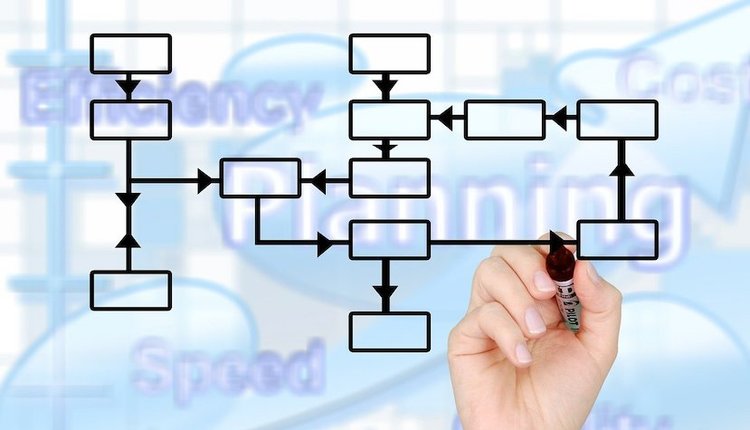
Image by: kvkirillov, ©2016 Getty Images
In all aspects of life, people like grand ideas. We must dream, and we might as well dream big. After all, this is the first step to accomplishing a goal—the place where results exist. Nevertheless, many dreamers don't get to see their goals achieved. In some cases, the goals were physically impossible to reach. For others, the investments were too huge, but in most cases, the goals are not achieved because the details were not handled properly, or even considered at all.
Let’s have a look at a familiar information management scenario. So, a new customer calls you wanting their vendor invoices to be approved in a workflow. "Something very simple," the customer says. Invoices are received by accounting who then decides which department must confirm the invoice. Once confirmed, the invoice is sent to the general manager to be approved. How much simpler can you get? Right? Wrong.
In order for a workflow to work properly, we need to consider beforehand which documents will automatically start the workflow. Usually, this is done through filtering of the document's metadata. In this case, we would have to have a field called “Document Type,” which would be filled with “Invoice,” a field called “Direction,” which would be filled with “In,” and a field called “Status,” which would be filled with “New.” These are the conditions for the flow to begin and deliver the document to the right person in accounting who will fill in the “Department” field for eventual confirmation.
So far, we have had to take care of many details:
- Which metadata fields do we need to store and process documents?
- Which users are part of accounting?
- Of those users, who can store documents?
- Which users can decide on departments?
- Is there any kind of task separation for the accounting staff related to specific vendors?
- Is there any sort of alarm to be implemented if the new invoice is not sent to a department for confirmation within a certain period?
- Which users belong to that particular department? Can any of them confirm this invoice? Or can only the manager confirm?
- Even if the common user of the department cannot confirm the invoice, can they view all invoices arriving to the department? Or for some confidential invoices, can only certain department users and the manager see them?
- What should happen if the invoice is sent to the wrong department?
- What should happen if the invoice is to be confirmed by different departments, since it includes materials for all of them?
- Can departments approve partial values?
- What if the values approved by departments do not match the value on the invoice?
The confirmed invoice arrives to the general manager for approval. Obviously, in order to approve it, the manager needs to have access to some other information. Is there a purchase order? If yes, can he/she access it quickly? If there are emails exchanged with the supplier, are those accessible quickly? Can the general manager approve the invoice but place it under a stand-by status? What if the general manager does not approve the invoice? What happens next?
At the general-manager level, there are also a number of details that must be handled. Is the general manager a person or a role with more than one person? If it is only one person, what happens if he/she is out of the office? Can the general manager approve documents while on-the-go? Is there someone else that can replace his/her approval? Should the general manager be reminded that he/she has invoices to approve? What if there are more than one manager? Should all of them approve the invoice? Would only one be enough? Are the managers individually associated with particular departments? Do we need to control the efficiency of departmental response? If so, then we also need to keep the dates of when we sent invoices to departments as well as dates of departmental confirmations; this means more metadata fields.
Scotty, the invoice is approved. Take us to orbit, accounting.
Accounting now receives the approved invoice for someone to pay. Again, we have to deal with some details: Who in accounting can see this approved invoice? Who can pay it? Is there a payment period that should be taken into consideration? Should there be some sort of alarm or email notification? Is the payment method relevant to some future statistic?
This has been an example of a simple process that all of us are familiar with. The main objective has been laid out as a “very simple” one, but even this very simple process involved a huge amount of details—a process that not only has to be built effectively but has to impact performance in an effective manner. We need vision, but without consideration for the correct details, we may face flaws in not only handling the details but also knowing which details to handle.
Joao Penha-Lopes specializes in document management since 1998. He holds two postgraduate degrees in document management from the University Lusofona (Lisbon) and a PhD from Universidad de Alcala de Henares (Madrid) in 2013, with a thesis studying the economic benefits of electronic document management (EDM). He is an ARMA collaborator for publications and professionally acts as an advisor on critical information flows mostly for private corporations. Follow him on Twitter @JoaoPL1000.
















